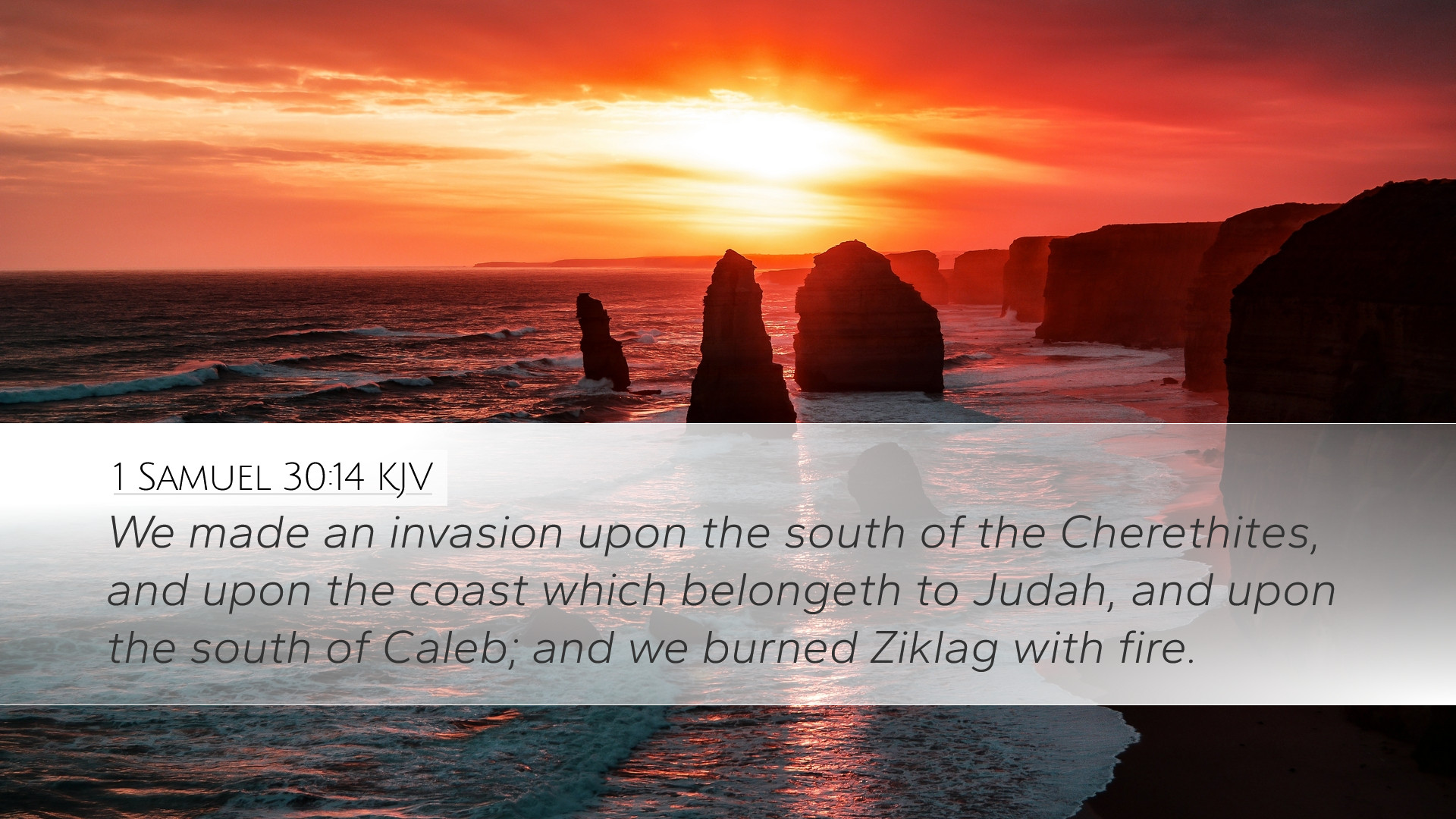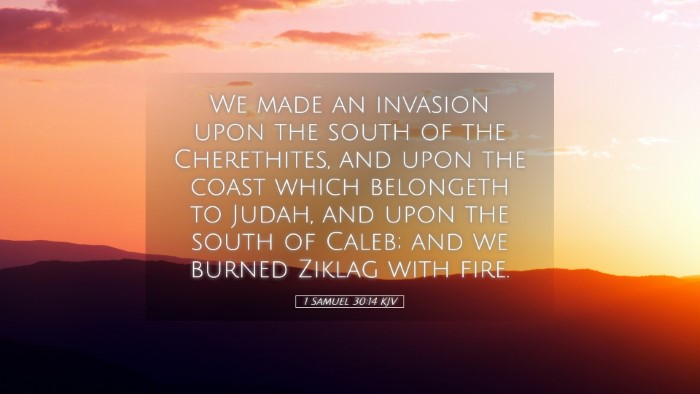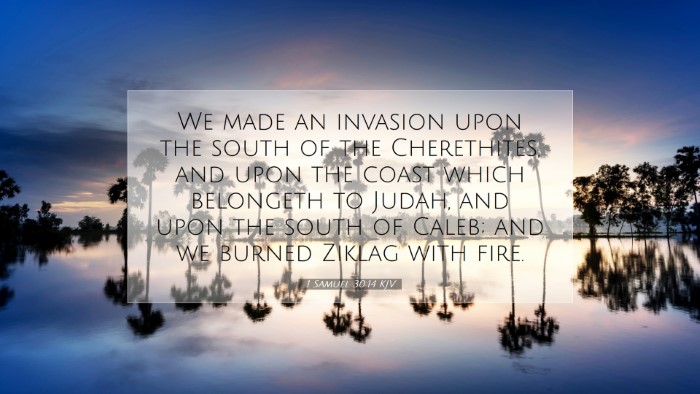Commentary on 1 Samuel 30:14
Verse Reference: 1 Samuel 30:14 - "We made an invasion upon the south of the Cherethites, and upon the coast which belongeth to Judah, and upon the south of Caleb; and we burned Ziklag with fire."
This verse is pivotal in the narrative of David's life, encapsulating themes of conflict, betrayal, and recovery. It depicts the harsh reality of warfare and the personal losses associated with it.
Contextual Background
The context surrounding this verse is crucial. David and his men had been living in Philistine territory fleeing from King Saul. The Amalekites, a constant threat to Israel, had attacked Ziklag, the city given to David and his men. This verse comes from the account of a raid leading to significant loss, highlighting both the perilous situation faced by David and the unrelenting nature of their adversaries.
Insights from Commentaries
Matthew Henry’s Commentary
Matthew Henry brings out the stark nature of the invasion described in this verse, emphasizing the devastation inflicted upon Ziklag. He notes that the Amalekites acted like marauders, plundering not only David’s city but showcasing the broader theme of God’s people suffering at the hands of their enemies. Henry states that this incident reveals the consequences of David's alignment with those foreign to God's covenant. The reference to burning Ziklag symbolizes complete destruction—an act that not only serves to demoralize David’s men but represents spiritual and physical ruin.
Albert Barnes’ Notes
Albert Barnes highlights the specifics of the locations mentioned—Cherethites and the coast of Judah—which are significant for understanding David’s geopolitical context. He explains that these regions were associated with Israel’s enemies. Barnes argues that the invasion was not just an act of war but a fulfillment of the Amalekites' longstanding hostility towards Israel. This verse illustrates both the depths of betrayal and the tragedy that befalls David as he attempts to lead his men amidst profound challenges. Barnes also draws attention to the emotional impact on David and his followers, who found their homes in ashes, likely prompting a moment of reflection on loyalty and the cost of leadership.
Adam Clarke’s Commentary
Adam Clarke delves deeper into the implications of the destruction of Ziklag. He notes that this event serves as a critical turning point for David, providing insight into David's character as a leader who faces loss head-on. Clarke posits that the Amalekites' attack was a judgment not only on Israel but also on David’s seeming failure to trust in God during his Philistine sojourn. Furthermore, Clarke suggests that Ziklag’s burning was not merely a tactic of war, but a spiritual metaphor for the trials that believers encounter when straying from reliance on God.
Theological Implications
This verse reveals multiple theological themes relevant for pastors and theologians:
- The Reality of Suffering: The event underscores the reality that even God's chosen servants face adversity and loss, challenging the notion that faith equates to immunity from hardship.
- Betrayal and Human Conflict: The betrayal David experienced highlights the complexities of human relationships amid the struggles of faith and leadership.
- Divine Justice: The Amalekites’ actions represent God's judgment against those who oppose His plans, stirring reflection on the covenant relationship between God and His people.
- Restoration and Hope: Despite profound loss, the narrative invites readers to consider the theme of restoration that often follows periods of devastation.
Practical Applications
For the church today, 1 Samuel 30:14 offers meaningful lessons for congregants and leaders alike:
- Empathy in Leadership: Leaders must be sensitive to the pain and loss experienced by their members, fostering an environment of support and healing.
- Encouragement Amid Loss: This passage serves to encourage believers that God can bring beauty from ashes, even when circumstances seem dire.
- Awareness of Spiritual Warfare: Understanding the spiritual dimensions of conflict can prepare believers to seek God’s guidance and protection against spiritual attacks.
Conclusion
The narrative encapsulated in 1 Samuel 30:14 serves not only as a historical account but resonates with ongoing themes of struggle, resilience, and faithfulness. By examining the insights from noted commentators, pastors and theologians can find enriched perspectives on leading through adversity while understanding the broader implications of God's providence in times of distress.


